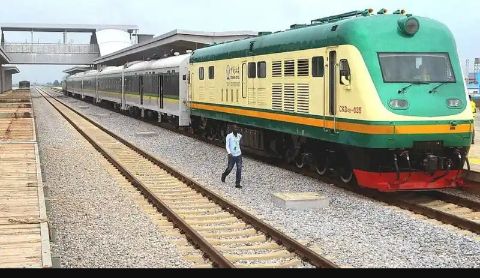Despite the widespread adoption of cashless policy payment systems in various sectors of the economy, the Nigerian Railway Corporation (NRC) has insisted on money payments for its exchange, most especially for fares along the Lagos-Ibadan route.
Other business owners are trying out to make an exchanges with Point of Sale (POS) and online banking services, it was seen that NRC officials were not accepting bank transfers or using the POS service.
Although, a notice was placed at Agege’s Babatunde Fashola station to inform passengers that the deadline for collecting old notes was on Wednesday.
Going on a trip to Lagos’s Mobolaji Johnson Station, it was seen that ticket officials were only accepting the new naira notes for operations. At Babatunde Fashola Station, it was also noted that ticketing officials accepted old notes only for Wednesday morning fares, with prior notice that other fares collected should be in new notes.
According to one of the officials, the management does not allow bank transfers or the use of POS machines because it is against their policy. Indeed, there was low patronage and officials at the Mobolaji Johnson station were working on lean operations.
Passengers traveling from Ibadan to Lagos on Wednesday stated that the NRC officials rejected the old notes, stating that only new naira notes would be collected.
Another passenger known as Mrs. Ogunsola said that she had to pay with the little new notes she had on her, as well as N100 notes, to board the train. She ascertain that the old notes were rejected by ticket officials.
On the contrary, a known passenger named Soji, who came from Ibadan, said officials at the Ibadan train station insisted on collecting the new notes, despite the stress he went through to get the new notes.
Also, speaking about the development, the NRC District Manager for Lagos, Augustine Arisa, made a statement that there is no cash anywhere and that everyone is facing a challenge.
He confirmed that the NRC is collecting new notes. In response to the use of POS, he stated, “We are not using POS. If e-ticketing is not available, you must pay in cash. Until we get the go-ahead for e-ticketing. People who do not have the new notes will be unable to use this facility.”
In essence, the NRC decision on Wednesday to persuade passengers on the narrow gauge to pay for tickets with new naira notes led to protests, forcing the management to reverse the decision.
Many passengers with old naira notes were stranded alongside a few who purchased tickets with new notes, just as the train was delayed for over two and a half hours at Kajola in Ogun State for fear of attack by passengers with old notes before the management will issue a cancellation.
From research, after receiving feedback on the potential consequences of the ticket sale decision and violent reactions from stranded passengers with old naira notes, management quickly directed ticketing staff at railway train stations in Kajola, Ijoko, Agbado, Agege, and Oshodi to sell tickets to passengers with old naira notes after a two-hour delay from the normal departure time from Kajola.
Passengers who relied on the train to get to work on time had no choice but to look for another mode of transportation. One of the passengers, John Paul, a trader in Yaba, described the corporation’s decision to introduce ticket collection with new naira notes as something that was too soon, ill-timed, and very annoying act.
Mr. Eric Umezurike, the Managing Director of First Fit Nigeria Limited, thought that a Federal Government agency like NRC has a great opportunity to collect old naira notes because it could easily change the note at the Central Bank of Nigeria (CBN).
He also added that if a government agency rejects old notes, while the case is still pending in court, what will be the reaction of most market women, supermarkets, gas station attendants, and many other private firms? This is seen to be very hilarious and devastating.
Notwithstanding, other private transportation companies that operate interstate shuttles have embraced the CBN’s cashless policy to ease the stress of many citizens in Nigeria.











